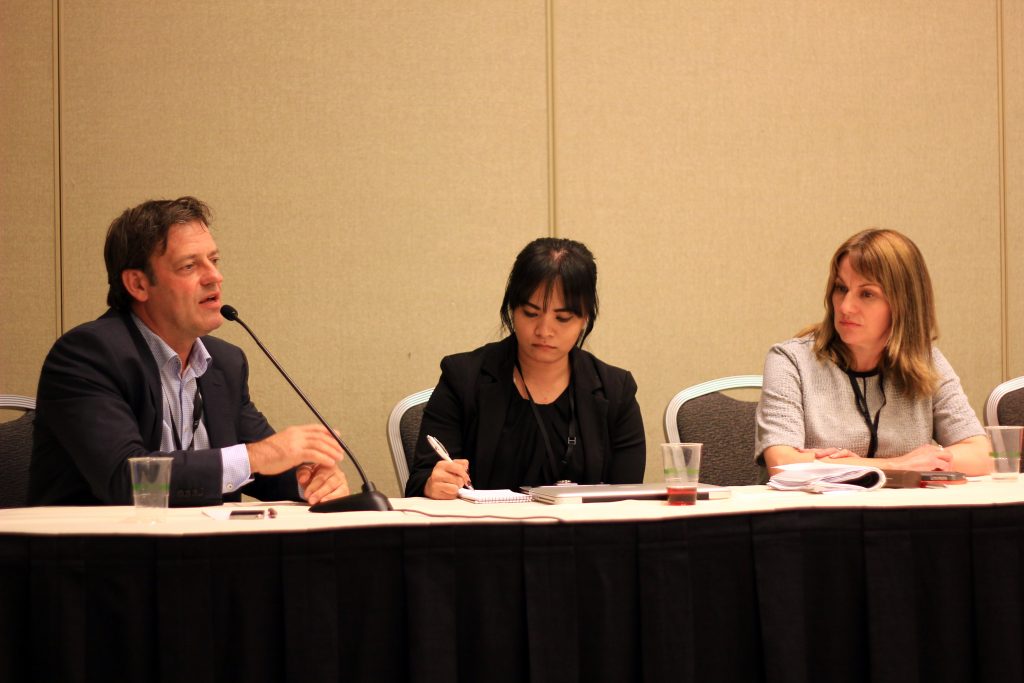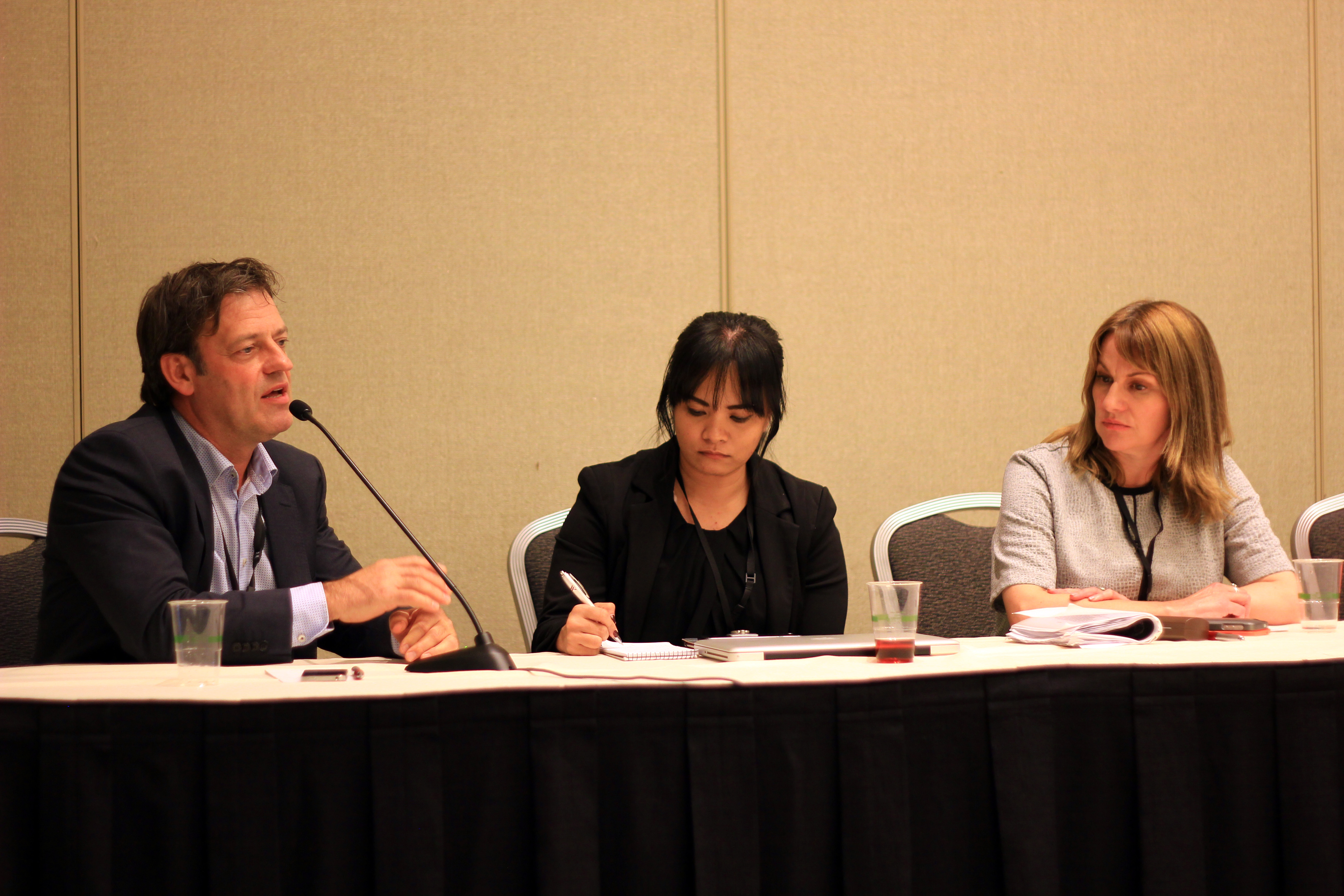Following the Science: How to Chase Stories Across Borders

Panelists (left to right) Ides Debruyne, Anna Valmero and Helen Briggs provided advice on cross-border journalism. Photo: Laura G. Shields
SAN FRANCISCO—Collaborate, collaborate, collaborate. That’s one core piece of advice echoed by all speakers in a session about cross-border journalism on 28 October at the World Conference of Science Journalists 2017.
“Science itself is really international, and science journalists should reflect this as much as they can,” said Helen Briggs, a journalist at BBC News in the U.K. “Increasing collaboration and increasing contacts between people can only be a good thing.”
The panelists for “Stories Don’t Stop at Borders, So Journalists Shouldn’t Either” represented Africa, Asia and Europe.
The rise of the freelancer
Moderator Michael Stang, a freelance science reporter in Germany, set the stage. The budgets at many media outlets are tightening, leaving little funding for travel. These outlets increasingly depend on freelance journalists. He noted this World Conference had more freelance attendees than any of the previous nine conferences.
Stang said that a journalist does not need to be a superstar or have the support of a large institution to conduct proper reporting on international stories. It can be done by individuals just as well.
The panelists demonstrated how by sharing case studies and solutions.
Challenges in Asia
Anna Valmero, a Philippines-based journalist at Citiscope.org, discussed some of the challenges in covering stories in the Asia Pacific region: language barriers, understanding local context and limited budgets.
“The use of digital tools is really a big help, especially when you need coauthorship for specific outlets,” said Valmero.
One such digital tool is Hostwriter, a free global social network of journalists for journalists. On the site, journalists can find or offer advice, coauthorship or even a couch to sleep on. By connecting with a local journalist, a reporter can approach an international investigation more efficiently. Hostwriter contacts can provide expertise on a country or research area and connections to potential sources or translators.
Building a network
Stang demonstrated the capability of Hostwriter by using the site to find speakers for the session.
Off-line networks, such as contacts made at meetings like the World Conference, are helpful for connections too.
“Always think beyond your national border when you try to pitch for a story."
Besides finding collaborators, journalists should secure funding for travel. Additional digital tools, such as the Global Investigative Journalism Network and the International Journalists’ Network, provide information about training opportunities, fellowships and grants available to journalists. They list different avenues for funding, including Journalismfund.eu.
Journalismfund.eu cofounder Ides Debruyne described his independent nonprofit organization. It supports and promotes broad investigative cross-border journalism—not just in science—in Europe. One of its main activities is providing grants for journalism via funding from foundations and other nonprofits. It also encourages mentoring and fosters networking among journalists.
Not for profit
Debruyne acknowledged that cross-border collaboration for multiple journalists does not fit into the business models for most media outlets, which is part of the motivation for Journalismfund.eu. Journalists are the last group to cross borders and collaborate, after politicians and criminals, he said.
The conditions for Journalismfund.eu grants stimulate such partnerships: the applications must be from at least two different countries, and the results must be published in at least two different countries. Additionally, the material must be relevant to readers in Europe.
Several other funding options exist if a story does not match those conditions. A journalist just needs to look at the available resources describing them.
“Always think beyond your national border when you try to pitch for a story,” said Valmero. “There’s always that factor of promoting a global perspective, even if you want to also provide the local context or even dimension to that story.”
—
Laura G. Shields has a doctorate in chemistry and is currently studying science communication at the University of California, Santa Cruz. Reach her at lgshields@gmail.com.

